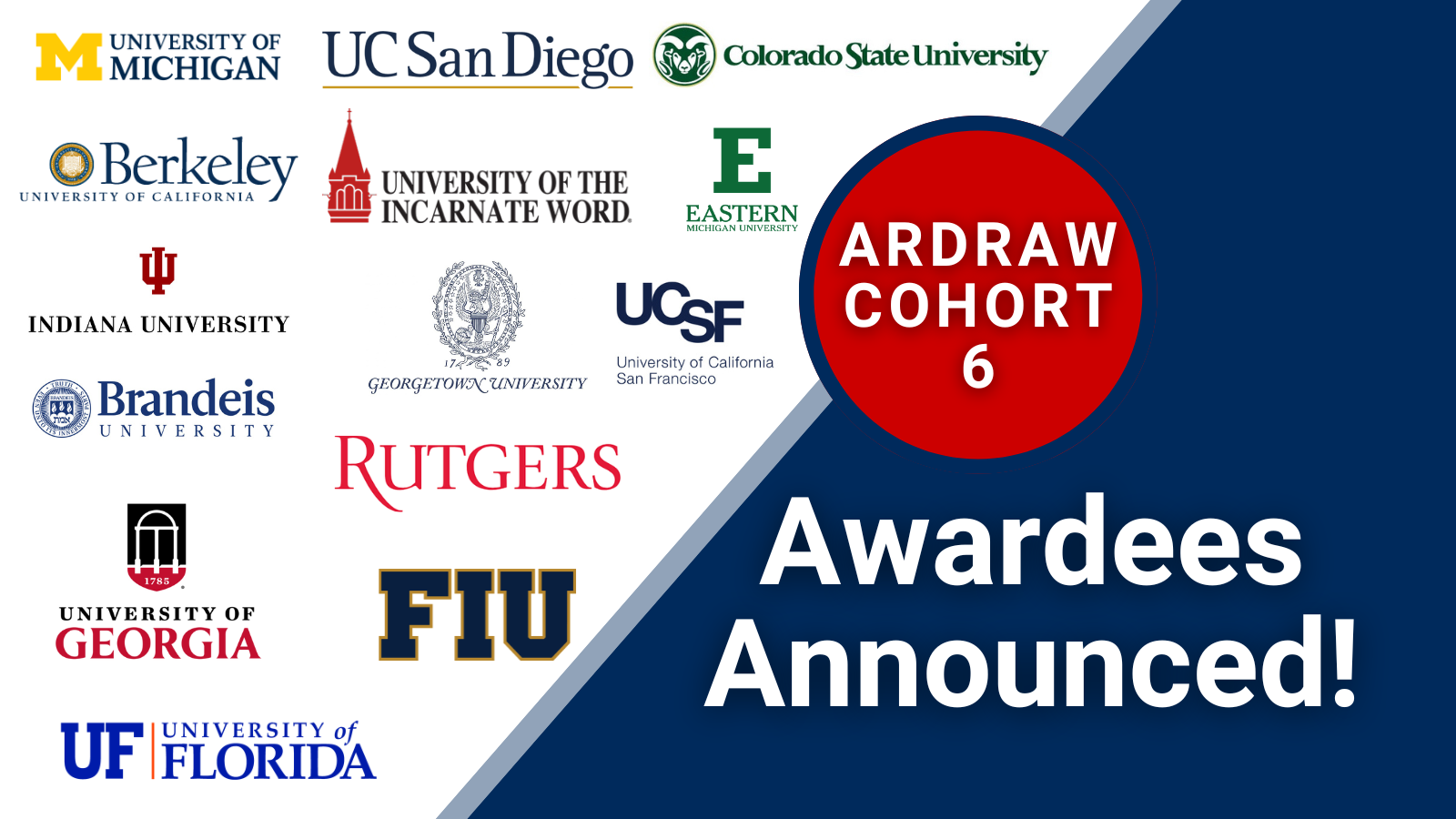The sixth cohort of student researchers in the Social Security Administration’s (SSA’s) Analyzing the Relationship between Disability, Rehabilitation, and Work (ARDRAW) Small Grant Program has been selected. SSA’s ARDRAW Small Grant Program is a 1-year $10,000 stipend program awarded to graduate-level students to conduct supervised independent research designed to foster new analysis of work, rehabilitation, and disability issues, which may develop innovative and fresh perspectives on disability. ARDRAW focuses on research relevant to SSA’s work incentives and employment supports—specifically rehabilitation, work, and the disability program.
Seventeen students have been selected to conduct independent research projects to assist Social Security policymakers in better understanding the relationship between disability, rehabilitation, and return to work. Teams of researchers from Policy Research, Inc., partner universities, and SSA reviewed students’ proposals on criteria, including relevance to SSA’s programs and policies, research methodology, and feasibility.
Projects cover a wide range of topics, including:
- Funding, implementation, and enhancement of employment supports for individuals with disabilities
- Caregiving and employment implications for parents of children with autism spectrum disorders
- Disability insurance uptake among dual-income households
Students come from universities all over the United States, including Brandeis University, Georgetown University, The University of Georgia, and the University of California, Berkeley.
Cohort 6 Research Projects
- Autism Rhetoric and Its Material Effects, 1990-Present
- BIPOC Perspectives on Additional Support Necessary to Overcome Systemic Barriers to Return to Work and Rehabilitation
- Development and Preliminary Validation of an Ecologically Valid and Performance-Based Assessment of Work Task Performance Skills
- Disability Insurance Take-up in Dual-Income Households
- Employment, SSA Benefits, and Childcare Options for Disabled Caregivers of Autistic Children in Rural Areas During the COVID-19 Pandemic: A Mixed-Method Study
- Geographic Predictors of Section 14© Certificate Use
- Identifying Autistic Perspectives on Support for Employment Success: Analyzing Data From the Autism & Employment Experiences Survey
- Improving Utilization of the Plan to Achieve Self Support (PASS) Among Emerging Adults With Neurodevelopmental Disorders
- Longitudinal Trajectories of Employment After Burn Injury
- Navigating SSA Employment Supports: The Experiences of Young Adults With Intellectual Disabilities Who Want to Work
- Parents of Children With Autism Sharing Stories for Program Equity
- Psychopharmacological Treatment and Long-Term Care Among People With Intellectual and Developmental Disabilities
- The Effect of Children’s Dedicated Accounts on Parental Labor Market Outcomes
- The Role of Additional Economic Resources on Employment Among the Disabled: The Effect of Financial Assets on Employment Among SSDI Beneficiaries via the Construction of Population-Level Panel Data on Wealth and Income
- Training Services and Individual Characteristics That Predict Successful Employment Outcomes for Adults With Intellectual Disability
- Understanding Behavioral Reactions to Neuroatypical Employees in the Workplace Through the Stereotype Content Model
- Vocational Rehabilitation Funding and Employment Outcomes for PWDS and SSA Beneficiaries
Cohort 6 Universities
- Brandeis University
- Colorado State University
- Eastern Michigan University
- Florida International University
- Georgetown University
- Indiana University
- Rutgers University
- The University of Georgia
- University of California, Berkeley
- University of California, San Diego
- University of California, San Francisco
- University of Florida
- University of Michigan – Ann Arbor
- University of New Hampshire
- University of the Incarnate Word
Learn more about the ARDRAW Small Grant Program!


